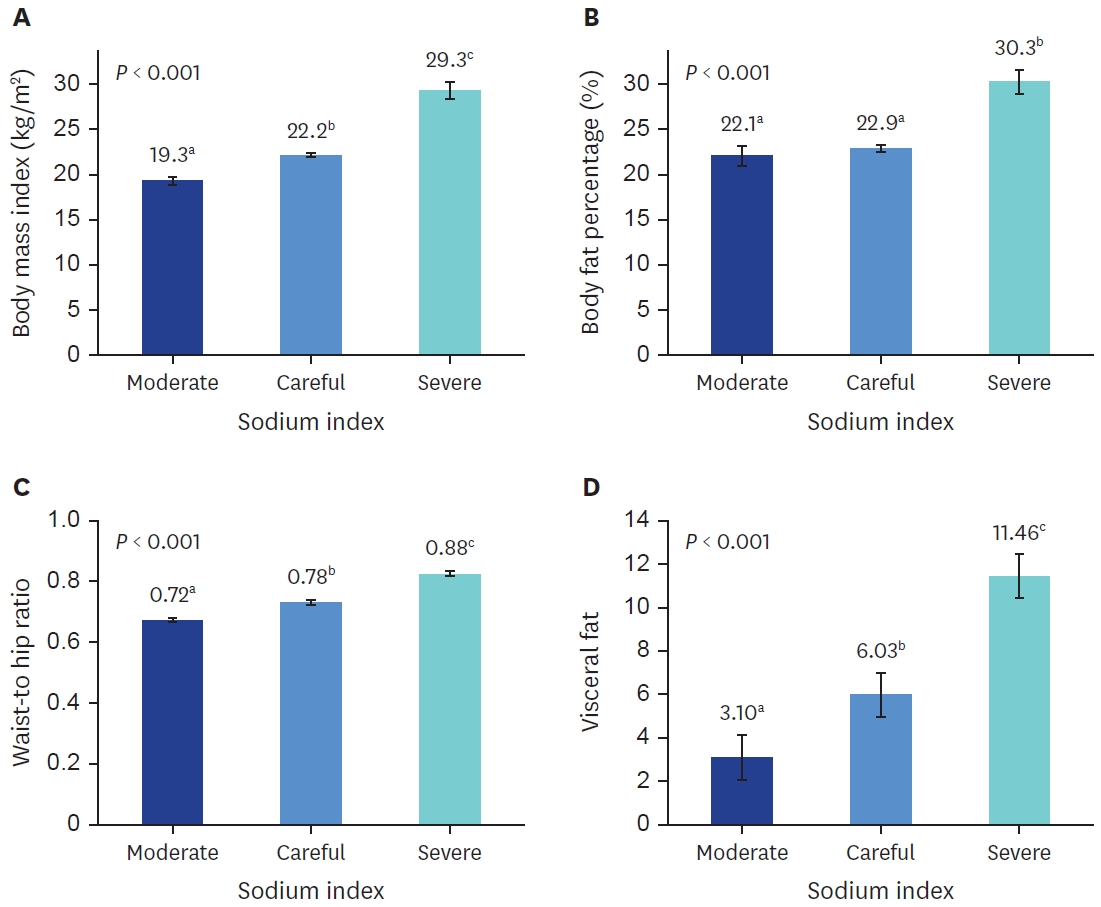- [English]
-
Relationship of sodium index with the obesity indicators of university students in Daegu, South Korea: a cross-sectional study
-
Young-Won Jang, Jian Ma, Yeon-Kyung Lee
-
Korean J Community Nutr 2024;29(3):189-198. Published online June 30, 2024
-
DOI: https://doi.org/10.5720/kjcn.2024.29.3.189
-
-
 Abstract Abstract
 PDF PDF
- Objectives
The sodium index is an index that converts the estimated sodium intake calculated using a verified and reliable sodium estimation formula. This study aimed to determine the relationship between the sodium index and obesity indicators and the potential impact of excessive sodium consumption on obesity.
Methods
Obesity indicators, such as body mass index (BMI), body fat percentage, waist-to-hip ratio (WHR), and visceral fat levels, were analyzed in 120 university students (60 men and 60 women). The sodium index was calculated by indexing the estimated sodium intake according to age, sex, BMI, salt-eating habits, and salt-eating behaviors. The relationship between sodium index and obesity indicators was analyzed using multiple logistic regression.
Results
The estimated sodium intake was 3,907.1 mg, with 76.7% of the participants categorized under the “careful” level of sodium index and 10.8% under the “moderate” level. As the sodium index increased, the BMI, body fat percentage, WHR, and visceral fat levels significantly increased. All obesity indicators significantly increased in patients with a “severe” sodium index than in those with a “moderate” sodium index. In addition, a strong positive correlation was identified between obesity indicators and sodium index. When the “severe” sodium index was compared with the “moderate” sodium index, the risk of obesity based on body fat percentage increased by 2.181 times (95% confidence interval [CI], 1.526–3.118), while the risk of obesity based on visceral fat level increased by 4.073 times (95% CI, 2.097–7.911).
Conclusions
Our findings suggest a correlation between excessive sodium intake and obesity. Moreover, the sodium index can be used to determine sodium intake.
|




